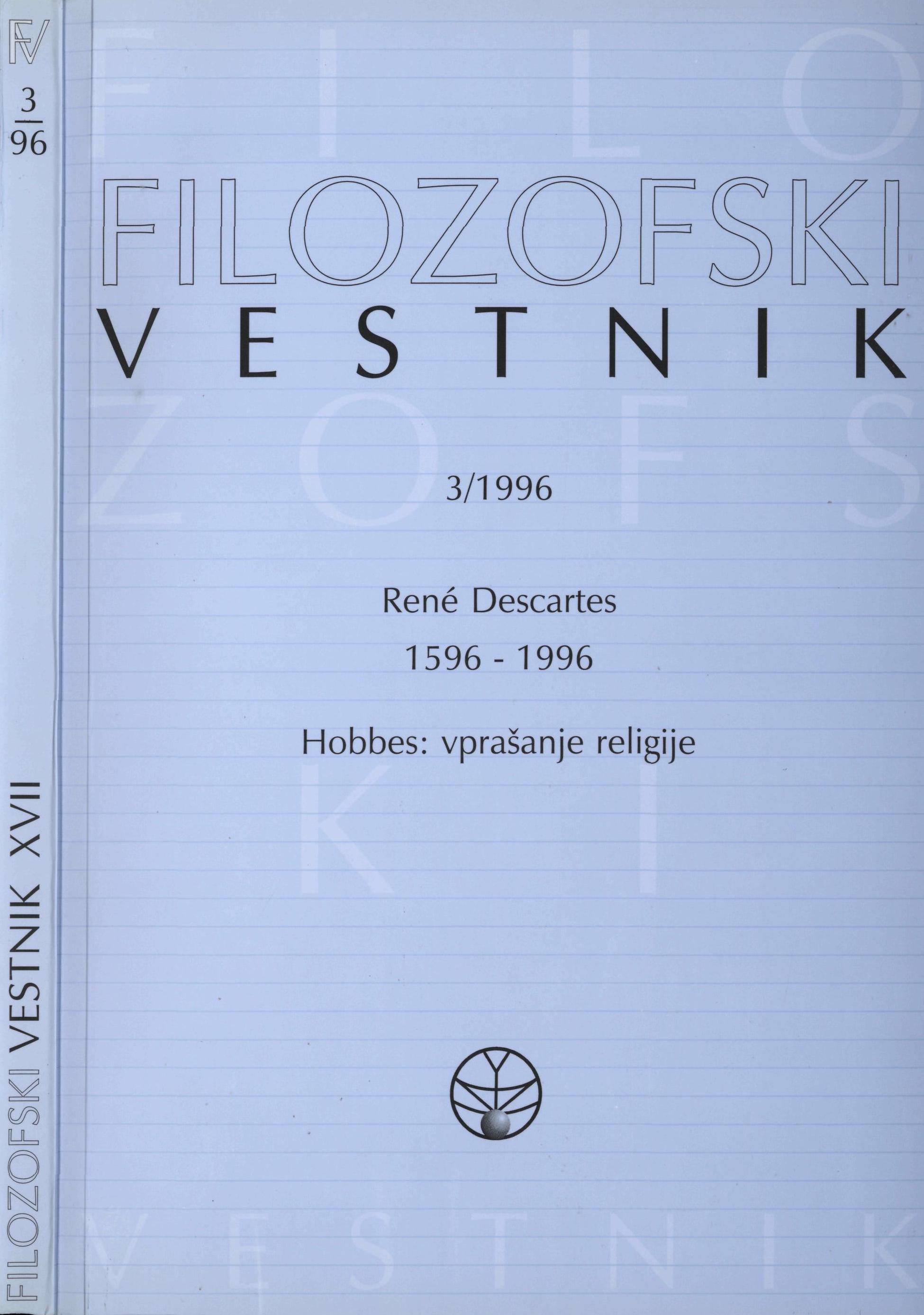Descartes kot razlikovalna instanca
Povzetek
Kako danes lahko beremo Descartesa? Poskusi zavrnitve Descartesa nakazujejo težnjo k temu, da bi tisti začetek, ki ga zastopa Descartesov vpis v zgodovino filozofije in znanosti, rekonstruirali v nekakšen nov začetek, ki bi se znebil kontinuitete z »Descartesovim začetkom«, pa naj gre za njegovo formulacijo subjekta, za njegovo utemeljitev metodičnega dvoma, za njegovo naklonjenost matematiki, za racionalni dokaz boga, predvsem pa za njegov rudimentarni koncept avtonomnega subjekta. Maritainova kritika Descartesa iz l. 1932 je v tem pogledu vzorec tudi kasnejših moralnih in ideoloških zavračanj Descartesove filozofije. V obravnavi Descartesovega dokazovanja boga pa se pokaže, da je tisto, kar je moteče za sodobne filozofije in ideologije, ki gradijo na abstraktnem konceptu »čoveka«, ravno Descartesova elaboracija cogita, v kateri je vpisana insuficienca subjekta. Kartezijanska paradigma je izhodišèe za koncepcije subjekta, v katerih je subjekt svoj lastni objekt. Subjekt, ki iz sebe določ vso realnost, torej tudi realnost samega sebe, ki je zaèetek in konec cirkularnega dokaznega postopka preko dvoma, je nenehno izpostavljen lastni negaciji.Prenosi
Podatki o prenosih še niso na voljo.
Prenosi
Objavljeno
2016-01-24
Kako citirati
Štrajn, D. (2016). Descartes kot razlikovalna instanca. Filozofski Vestnik, 17(3). Pridobljeno od https://ojs.zrc-sazu.si/filozofski-vestnik/article/view/3965
Številka
Rubrike
René Descartes (1596-1996)
Licenca
Avtorji jamčijo, da je delo njihova avtorska stvaritev, da v njem niso kršene avtorske pravice tretjih oseb ali kake druge pravice. V primeru zahtevkov tretjih oseb se avtorji zavezujejo, da bodo varovali interese založnika ter da bodo povrnili morebitno škodo.
Podrobneje v rubriki: Prispevki





